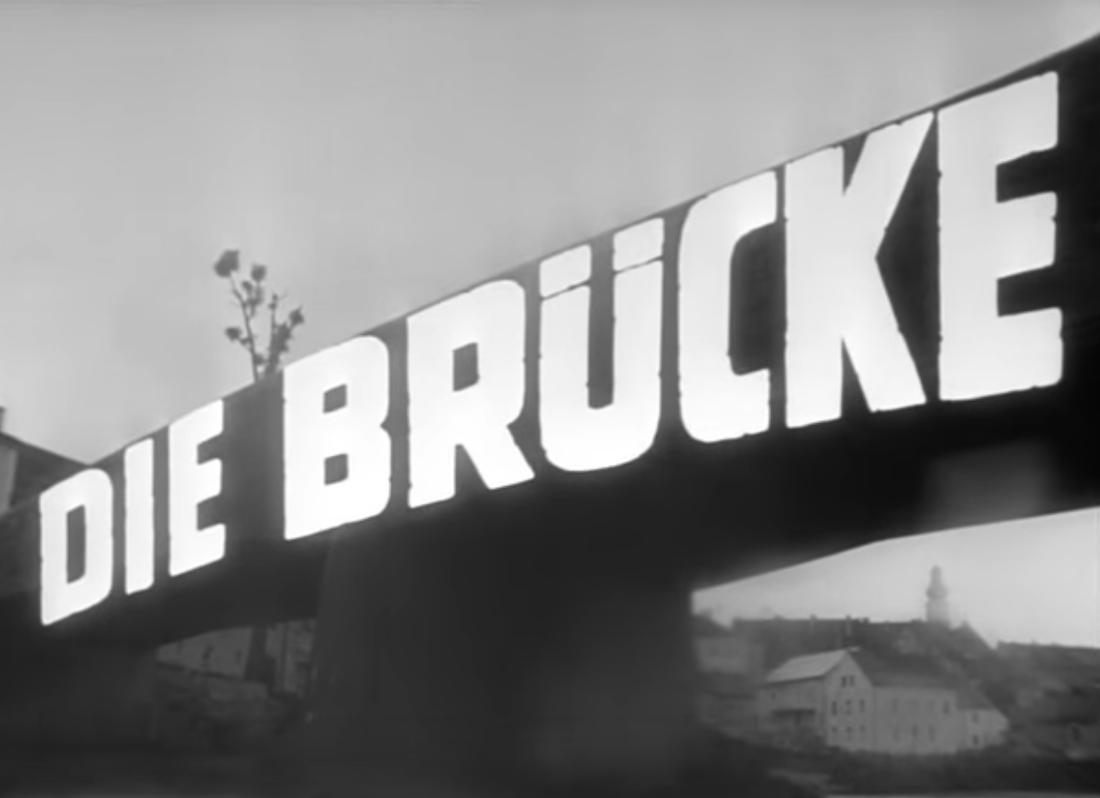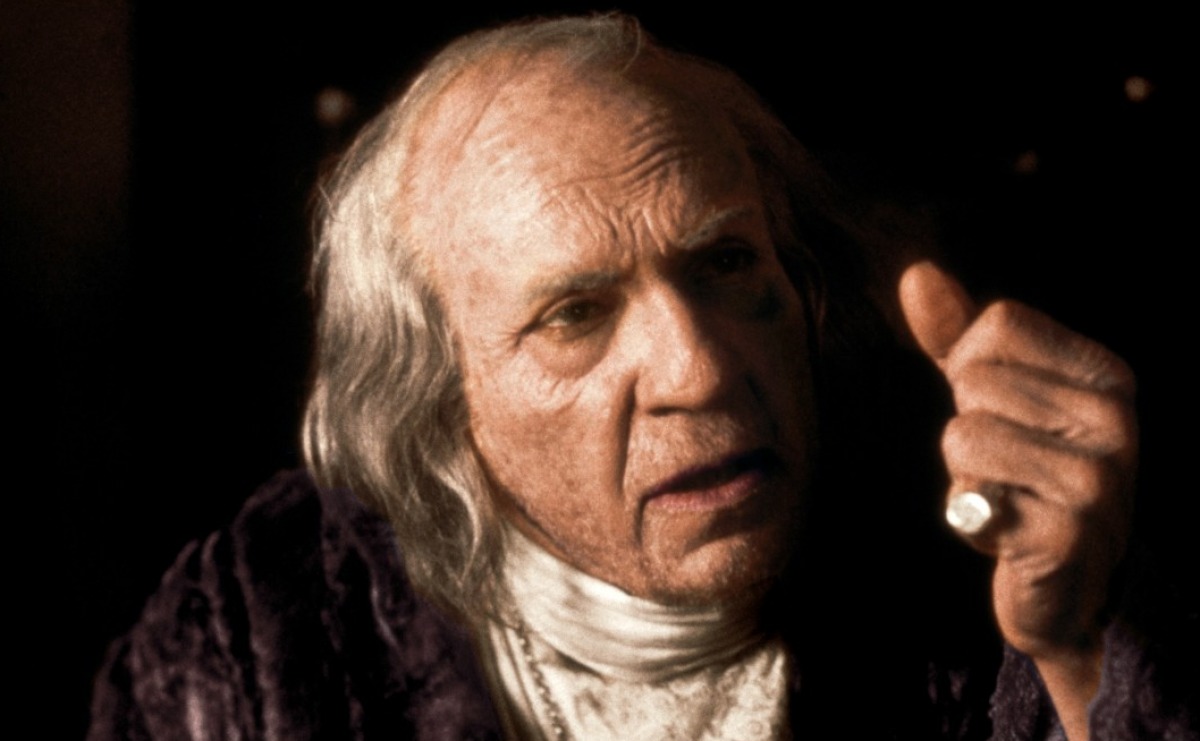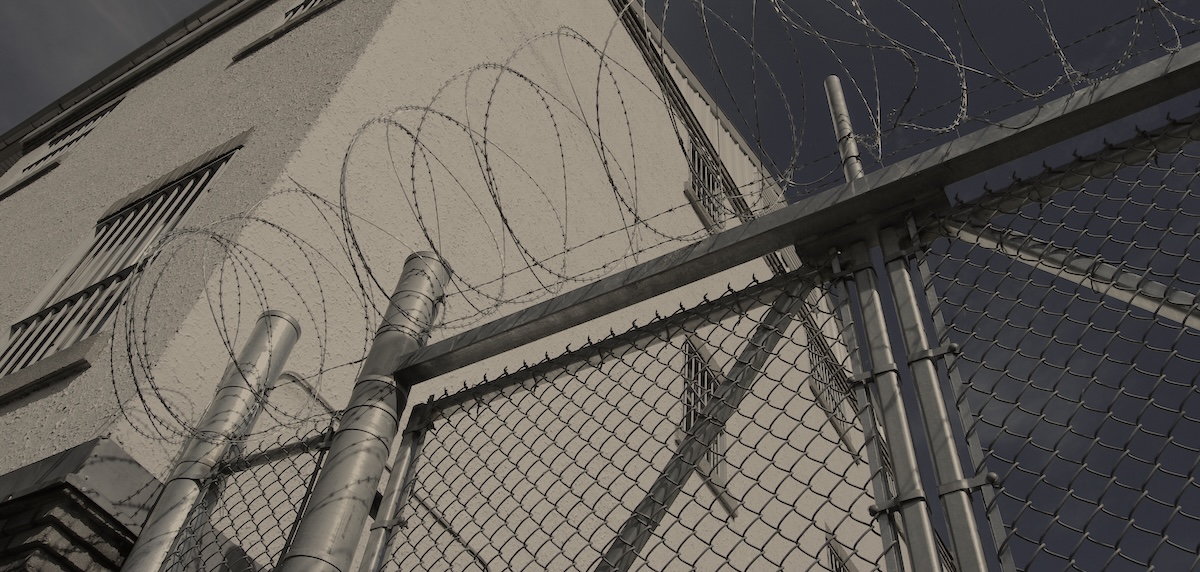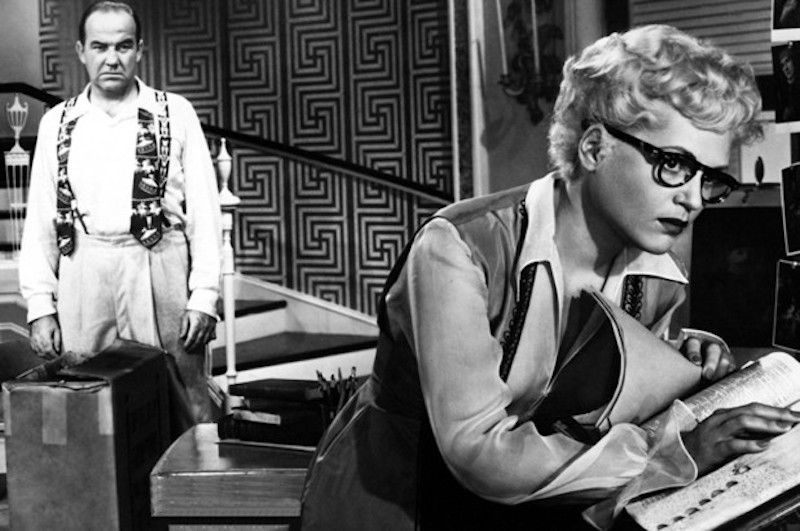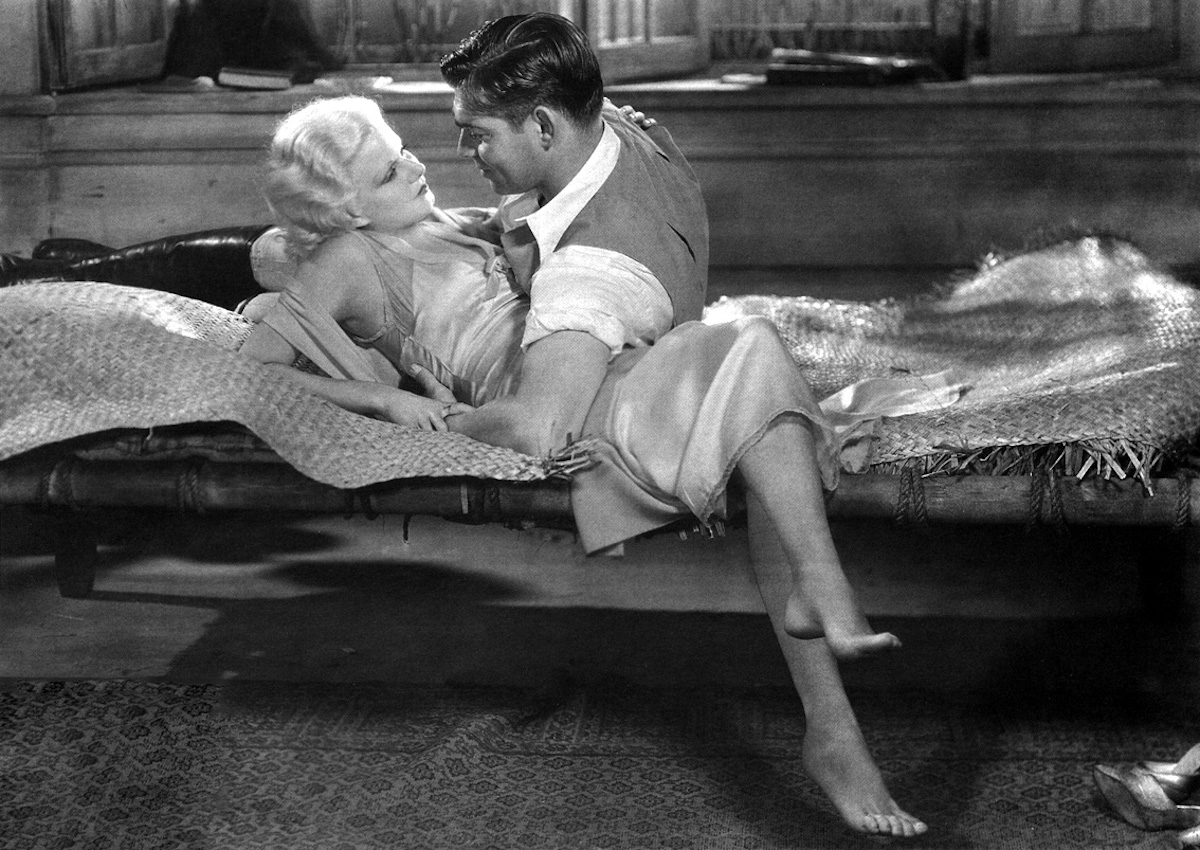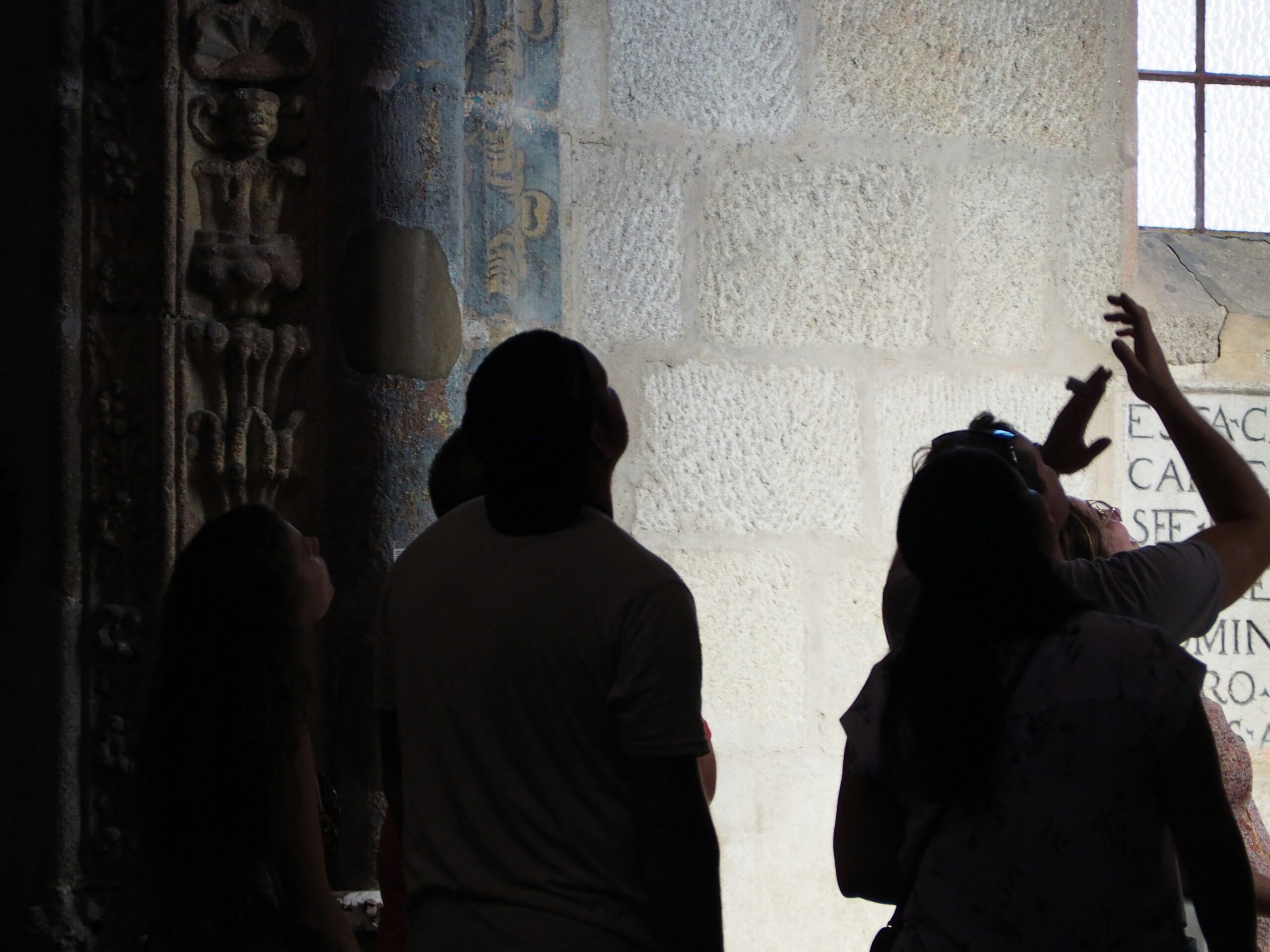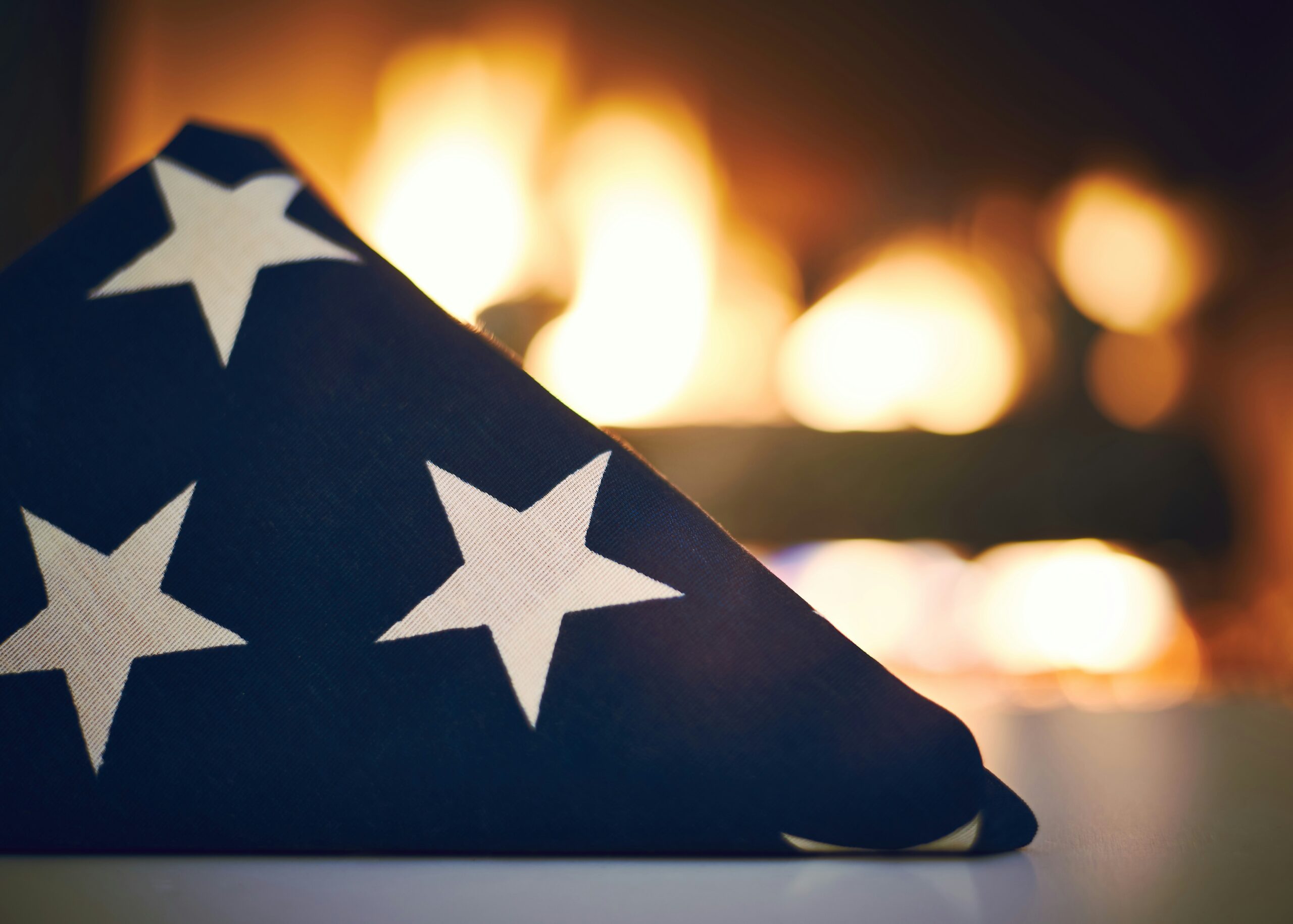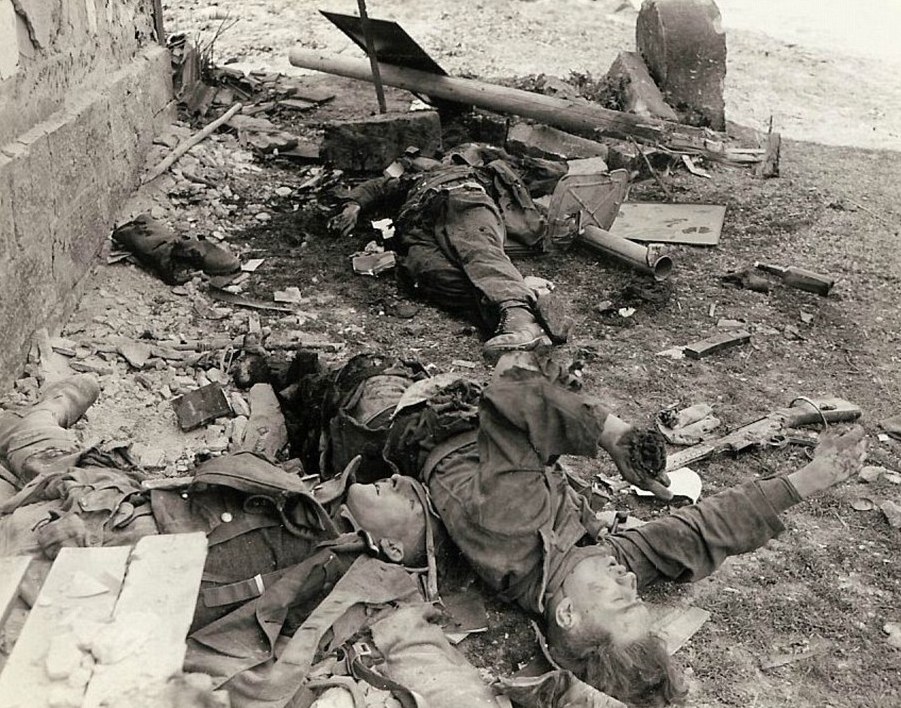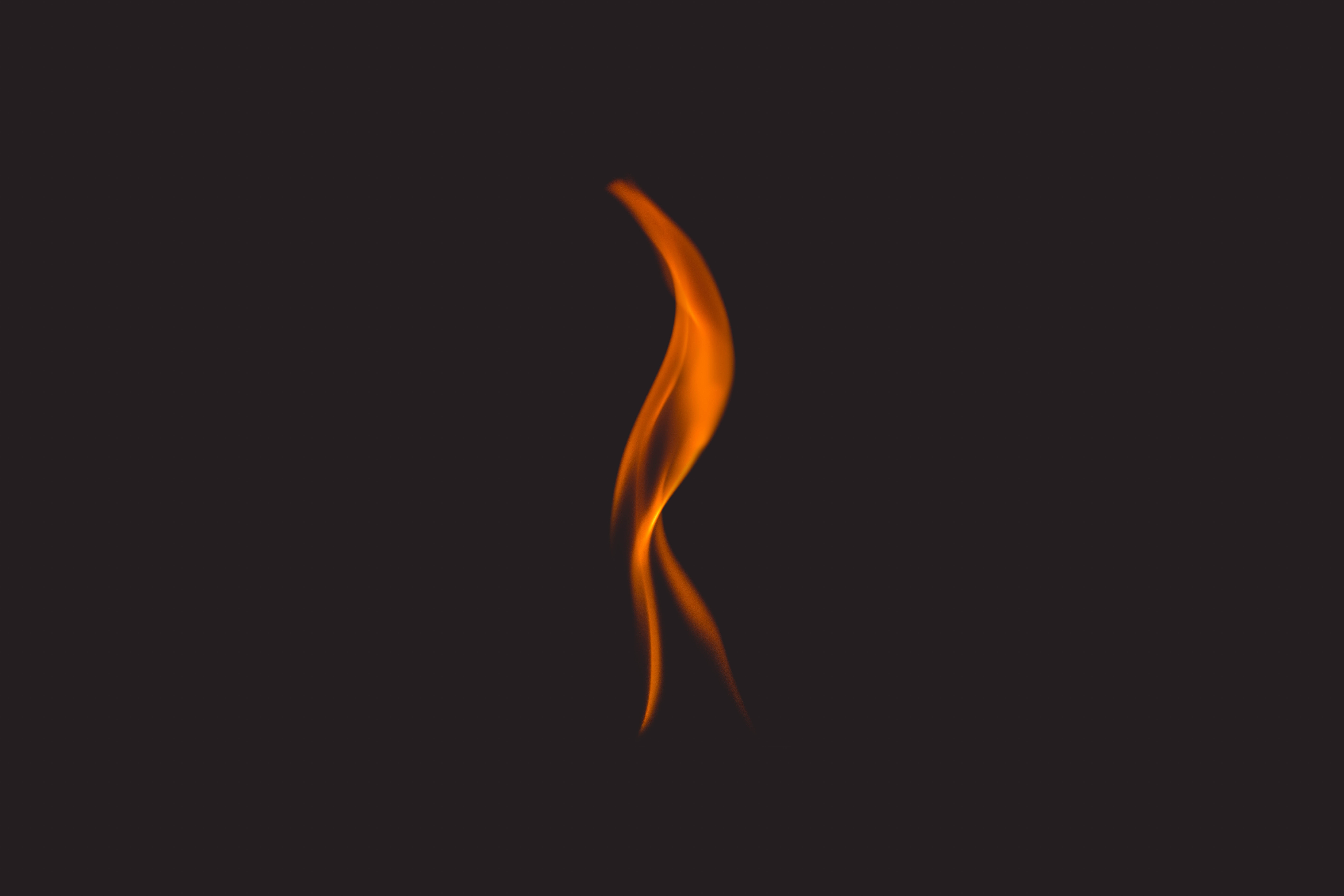
From 1959: «Die Brücke (The Bridge)». Sure it’s an anti-war war film. But it also works as horror: you know what these teens are about to suffer as the film moves from happy school days with worries about English class, liquor, a boat and some girls to its inevitable conclusion, and you want to shout, “Don’t go in that basement [on that bridge]!” For a first-time film director, Bernhard Wicki sure knew what he was doing. This is German cinema at its finest.
The synopsis:
“A group of German boys are ordered to protect a small bridge in their home village during the waning months of the second world war. Truckloads of defeated, cynical Wehrmacht soldiers flee the approaching American troops, but the boys, full of enthusiasm for the “blood and honor” Nazi ideology, stay to defend the useless bridge.”
TMDb
I paired it with Ich war Neunzehn, the East German/Russian film about a 17-year-old Red Army lieutenant’s last days of the war north of Berlin. It’s hard to think of a better illustration of the end of the European theater of war free of the pernicious and ubiquitous American boo-yah of so many countless war films. With these two films, you get rare perspectives of both the end of the war and of the beginning of the peace; Die Brücke illustrates the final gotterdamerung of the Reich and Ich war Neunzehn illustrates the post-gotterdamerung of East German communism overseen by Russian propaganda.
While I still dearly love Der Untergang (2004), it and so many other films tell the same old stories of the major characters of the war. These two films however show what life was like for millions of ordinary people. Die Brücke barely mentions Hitler and Churchill, and they are far off and far removed from the school boys’ mundane cares. Ich war Neunzehn doesn’t mention Stalin. They both allude to the systems of fascism and communism, but that’s not the focus. The result in both cases is refreshing. Instead we see real human beings surviving or dying without madeup actors with little clipped mustaches and their historical names in print below to tell viewers this madeup actor is Hitler or Stalin or Churchill.
David M. Keyes of «Cinemaphile» describes Die Brücke this way:
“The bridge persists as a stubborn link between a decaying empire and imminent liberation, defended enthusiastically by seven young men on the precipice of mortal danger. They wear masks that distort their notion of the inevitable, but not merely out of ignorance; they have been molded by the vehement enthusiasm of nationalism, which remains unchanged even after buildings have crumbled and soldiers have been erased from the battlefields. Most of them are all too eager to step in as defenders of their treasured Reich, though the faces of their parents reflect a more anxious concern.
Cinemaphile
“In one notable moment, for instance, one of the mothers tearfully pleas with her son to ignore the drafting letter he has received, insisting that he flee to the country to stay with relatives. He declines, grinning the whole way, which places emphasis on the underlying conflict: can these teenage boys be faulted for being slaves to the pure and idealistic, even as the possibilities of triumph seem lost in a haze of downtrodden confessions? Perhaps it is more sobering to see them as symbols of the uncultivated, especially under the rule of the Nazis: because this essentially made them the most expendable in an impending fight against enemy combatants, an obligatory defeat only aggravates the wound created by their destructive occupation.”
I’ll come back again and again to this one, and to Ich war Neunzehn; next time, I’ll view them back-to-back on the same night.

Die Brücke. 1959. Criterion Collection. German with English subtitles. Bernhard Wicki (d); Manfred Gregor (novel); Folker Bohnet, Fritz Wepper, Michael Hinz, Frank Glaubrecht, Karl Michael Balzer, Volker Lechtenbrink, Günther Hoffmann, Cordula Trantow, Wolfgang Stumpf, Günter Pfitzmann, Heinz Spitzner, Siegfried Schürenberg, Ruth Hausmeister, Eva Vaitl, Edith Schultze-Westrum, Hans Elwenspoek, Trude Breitschopf, Klaus Hellmold, Inge Benz, Til Kiwe, Edeltraut Elsner, Vicco von Bülow, Georg Lehn, Johannes Buzalski, Heini Göbel, Alexander Hunzinger, Alfons Teuber (a).

